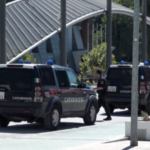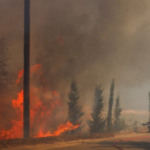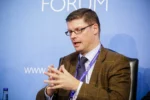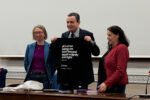Serbian Deputy Prime Minister Aleksandar Vulin is currently on an official visit to Russia, where he attended a ceremony on August 12 unveiling a monument to Yugoslav partisans at Patriot Park near Moscow.
In his speech, Vulin remarked, “Serbs and Russians won their freedom in World War II and this freedom was extended to other nations as well.” He further declared, “Serbs and Russians have never chosen the wrong side of history.”
According to the Serbian Government, Vulin will meet with top Russian officials in Moscow and visit the International Military-Technical Forum “Army 2024” to explore military equipment exhibits. This marks Vulin’s second official visit to Russia since assuming the role of Deputy Prime Minister on May 2.
Earlier, in mid-June, Vulin met with Russian security service leaders. His trips to Russia have been frequent since the beginning of the Russian invasion of Ukraine in 2022, as reported by REL. This visit comes amidst ongoing U.S. sanctions against Vulin, primarily due to his close ties with Russia.
Additionally, Serbian Minister without Portfolio Nenad Popović, who also chairs the Serbian side of the Serbian-Russian Intergovernmental Committee for Trade, Economic, and Scientific-Technical Cooperation, will be in Moscow for an official visit this week. On August 13, Popović is scheduled to meet with Russia’s Minister of Economic Development, Maxim Reshetnikov.
The Serbian Government announced that this meeting will be a coordinating session for the Intergovernmental Commission, where discussions will focus on preparations for the upcoming session and the activity plan for the near future.
Popović, known for his close connections with the Kremlin, is also on the U.S. sanctions list. Despite the Russian invasion of Ukraine entering its third year, Serbia has maintained its ties with Russia, officially supporting Ukraine’s territorial integrity while refusing to impose sanctions on Moscow. This stance, defended by Serbia as a consequence of its friendly relations with Russia and the international support it receives from Moscow, continues to draw criticism from Western partners.







